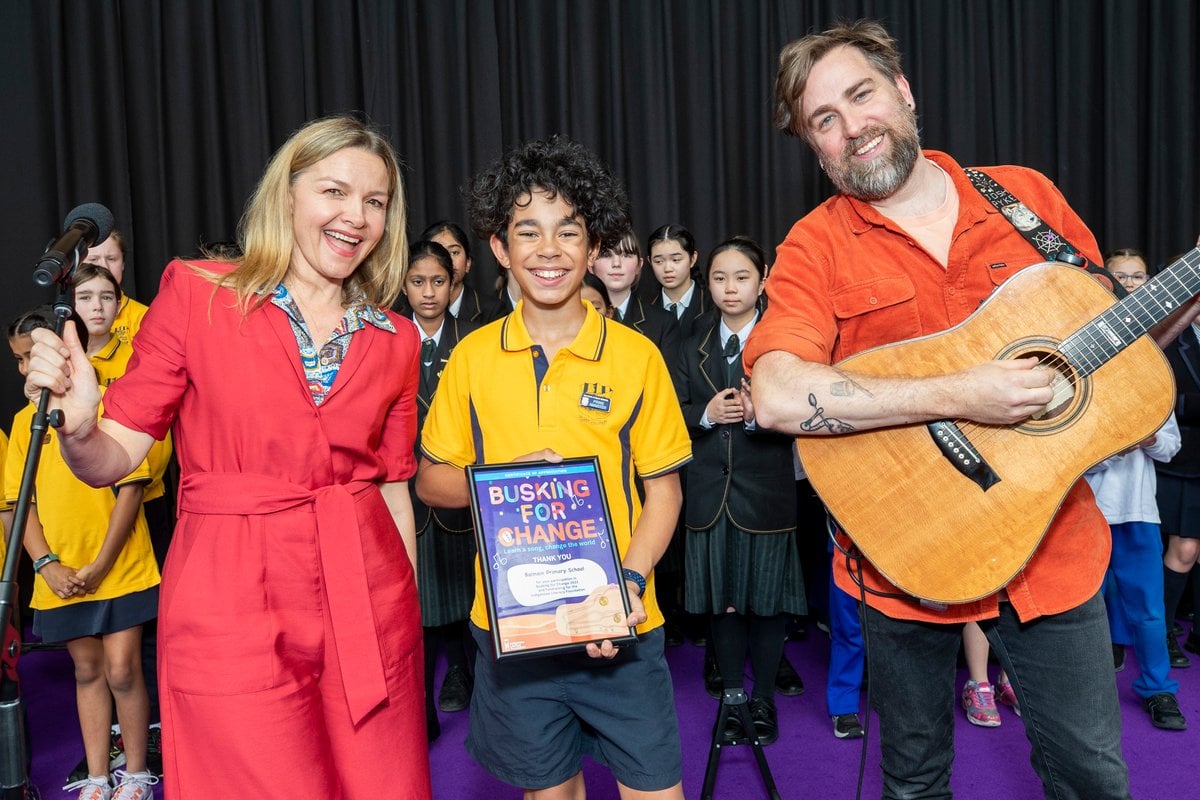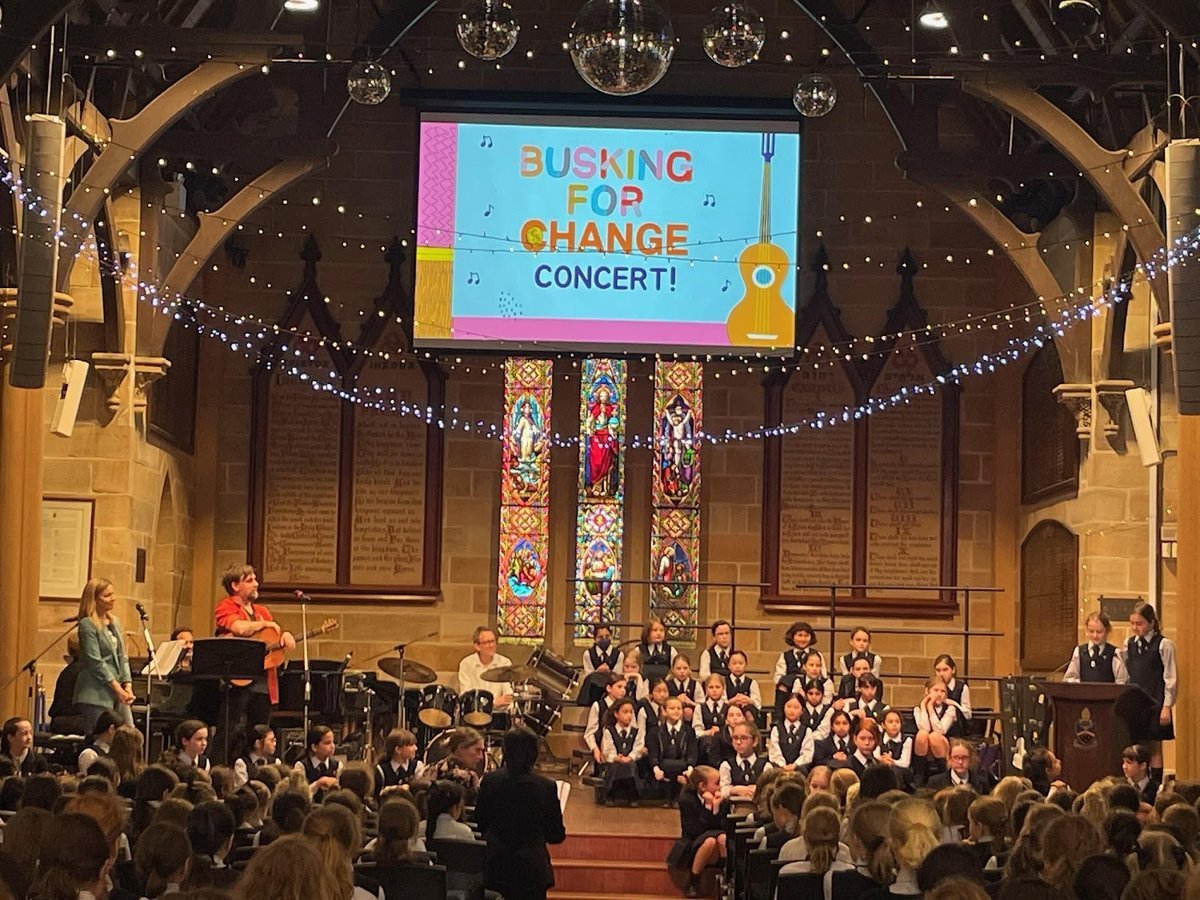
Indigenous languages in Australia are currently under threat.
At the time of colonisation, over 250 distinct Aboriginal and Torres Strait Islander languages were spoke. However, only 123 languages are still in use today, according to an AIATSIS 2018–19 survey.
And it doesn't stop there.
Of those langues, most are "highly endangered", while only 12 are relatively strong and being taught to children.
Now, one fundraising activity is helping promote First Nations languages, by funding resources for kids in remote communities and encouraging students to learn a First Nations language.
Developed by five-time ARIA award-winner, Josh Pyke, Busking for Change sees students learn to sing, play an instrument or dance to a song, and seek donations from family and friends.
This year, the Busking For Change song is 'Words Make the World Go Around', with students encouraged to learn the entire song or just the chorus in Kriol, the largest First Language spoken in Australia.
Speaking to Mamamia, Pyke, says learning the song in Kriol gives all children the chance to connect to First Nations language.
"As Ben Bowen [the CEO of ILF] has brought up, if you ask any kid how to say 'hello' in another language, a lot of them will be able to say it in French, or Italian, Chinese or many other tongues, but if you ask them how to say it in a First Nations language, they will likely be unable to.
"Learning the song in Kriol opens the doors for non-Indigenous kids to start having a relationship with Indigenous languages and educates them in the fact that most Indigenous kids speak five or six languages before they speak English. It’s something every Australian should be aware of."

